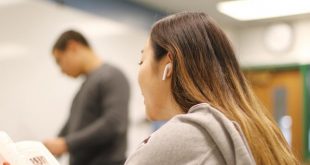By: Eileen Guo
Education is certainly an essential aspect of life, but many schools and their programs fail to maximize the potential of the students due to one simple error: They don’t combine classroom instruction with firsthand experience.
1. Find a program with teachers and mentors who have situational knowledge
The best education pairs students with mentors who have invaluable experiences to share; those who know what it takes to succeed in an organization or role, and can provide the right feedback to their students. Mentors can prepare their mentees for the tests they will face in the real world and give them the right tools to get the job done. Experienced mentors can show students exactly what it takes to succeed in a profession, and eliminate misconceptions about a given job.
2. Schools should push you to be your best, not just push you out the door
One of the most important aspects for any academic program is to have high, but realistic, expectations for students and push them to pursue their potential in whatever ventures they choose. These programs must produce job-ready graduates and provide constructive feedback so that graduates can achieve their goals without having to learn the hard way: experiencing failure after failure until they finally get it right.
The best feedback from instructors and mentors helps students understand the areas in which they need to improve in order to succeed, as well as guide them to make adjustments if they find that they fit certain roles better than others.
3. Hands-on experience with the latest tech and trends is essential
In an ever-evolving business environment, programs that adapt to changing technology and strategy will produce more job-ready graduates. A program’s curriculum must have a focus on preparing students with the tools of the trade that are currently being utilized, as well as the pioneering tools and techniques that are trending toward widespread use.
 Tempus Magazine By Students, For Students
Tempus Magazine By Students, For Students 



